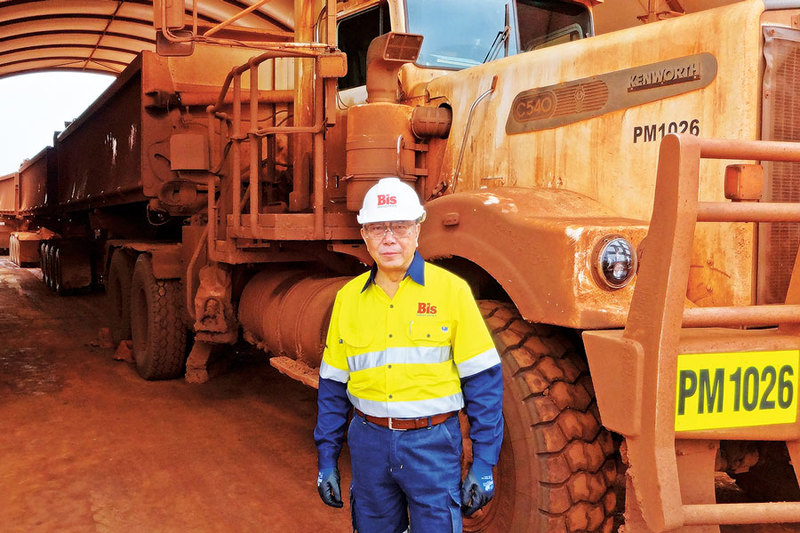
Noke Kiroyan, the President of The Indonesia Australia Business Council (IABC). Photo courtesy of IABC/NOW!JAKARTA
Established in 1989, the IABC is regarded as the key bilateral business council and works very closely with the Indonesian Government and the Australian Embassy in Jakarta. This allows the IABC to represent the business and commercial interests of Indonesian and Australian businesses engaged in investment and bilateral trade, through to Government levels.
We spoke to Noke Kiroyan, the President of IABC, about the economic relationship between the two countries and the role of IABC to further strengthen their ties.
How do you feel the overall relationship between Indonesia and Australia is doing at the moment?
Currently, the overall relationship between Indonesia and Australia has reached a level that is unprecedented, there has not been a serious incident – or any incident at all – that could cause some degree of discomfort, during the 3-year period that President Joko Widodo has been in power. This is particularly true at senior government level. There is good rapport between the President and Australian Prime Minister Malcolm Turnbull, and from my limited vantage point I dare say that between various ministers and other government institutions of both countries a similar relationship exists.
At a personal level, many Australians are quite at home in Indonesia, and the same can be said about the Indonesian community in Australia. My Public Affairs consulting company has hosted five Australian interns so far and I have observed no issue at all in the interaction between these young Australians and my team. We don’t treat them differently from Indonesian interns and they have lunch together with our team members at the various stalls or eateries in the vicinity of the office in Mega Kuningan.
What is the role of IABC in this relationship?
IABC plays a role in the promotion of the bilateral relationship at three levels. First, we assist both governments in understanding business issues: senior Australian government officials and parliamentarians, particularly those whose portfolio relates to the economy or business, as a rule seek input from IABC on bilateral business issues. Senior Indonesian officials would consult the IABC as well on matters that are relevant to the bilateral relations. Together with KADIN and APINDO, IABC constitutes the Indonesian part of the Indonesia-Australia Business Partnership Group that together with counterpart organizations on the Australian side provides input and is consulted by the negotiating teams of both governments in the process of formulating the Indonesia-Australia Comprehensive Economic Partnership Agreement (IA-CEPA).
The second level of bilateral relationship promotion is a vehicle for contact initiation or intensification for businesses on both sides by means of various programs such as the Monthly Business Gathering, specific industry-related functions and the Business Conference that we host in Indonesia every other year, alternating with our sister organization, the Australia-Indonesia Business Council that organizes a similar event in Australia.
Finally, there is the individual-company level facilitation of contacts between companies on both sides.
Are the current economic climate and the Indonesian investment policies conducive to Australian investment in Indonesia?
The general climate in Indonesia is improving with the government’s continuous effort at making Indonesia an easier place to do business in, this year we have improved our ranking in the World Bank’s Ease of Doing Business survey to number 72. We see a steady improvement from 114 in 2014, to number 109 in 2015 and 91 in 2016, so President Joko Widodo’s objective of reaching number 40 in 2019 appears well within reach. That said, one particular sector that Australia excels in, i.e. mining, currently still presents real challenges that may be overcome by improving the regulatory environment. There is potential for growth in the years to come. Two ASEAN economies, Thailand and Malaysia, that are much smaller than Indonesia have larger bilateral trade volumes with Australia compared to Indonesia. Both countries have free trade agreements with Australia, which may be the reason for these bigger volumes. With the conclusion of IA-CEPA we hope that the trade volume will increase, and following the formula of “investment follows trade”, I hope that Indonesia will catch up.
Which sectors are successful and which, if any, are in need of attention?
Indonesia’s exports to Australia so far are dominated by oil and oil products. Lately we have seen an increase of garments and footwear export to Australia. Education is one area that Australia has successfully promoted in Indonesia, there are currently 19,000 students pursuing university education in Australia, and as is generally known, the lion’s share of wheat that is processed into noodles and bread in Indonesia comes from Western Australia. Australia also dominates the market for imported beef in Indonesia, both in the form of livestock and frozen meat. On the other hand, Indonesian business appears not to appreciate the potential of Australia as an export destination because we tend to look at Australia as a small market. We tend to judge the size of the market by the number of its population, which to some extent may be true. With a population of about 24.5 million, Australia to many Indonesians is a small country. But the true size of an economy is its GDP and by this measure Australia is larger than Indonesia, which means that there is buying power that Indonesians may tap into.
How do you describe your personal role in this important engagement?
My personal role in the bilateral engagement is to participate wherever I can in the activities of IABC. I am directly involved with three Australian companies as well. I am Commissioner or Non-Executive Director of PT Agincourt Resources, a world-class gold mine in North Sumatra whose majority shares the are held by EMR Capital in Melbourne and PT Bis Industries, a mining logistics company that is a subsidiary of Bis Industries Limited in Perth. I am a Senior Advisor to Coca-Cola Amatil Indonesia, subsidiary of Coca-Cola Amatil, a publicly listed company in Sydney.



